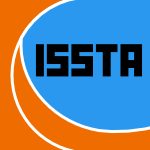82 papers:
 CSEET-2015-Bagert #challenge
CSEET-2015-Bagert #challenge- The Continuing Challenge of Delivering SE Content to CS Majors (DJB), p. 1.
 MSR-2015-SlagWB #stack overflow #why
MSR-2015-SlagWB #stack overflow #why- One-Day Flies on StackOverflow — Why the Vast Majority of StackOverflow Users Only Posts Once (RS, MdW, AB), pp. 458–461.
 DAC-2014-AmaruGM #algorithm #graph #logic #novel #optimisation #performance
DAC-2014-AmaruGM #algorithm #graph #logic #novel #optimisation #performance- Majority-Inverter Graph: A Novel Data-Structure and Algorithms for Efficient Logic Optimization (LGA, PEG, GDM), p. 6.
 SIGMOD-2014-HuaiCGHHOPYL0
SIGMOD-2014-HuaiCGHHOPYL0- Major technical advancements in apache hive (YH, AC, AG, GH, ENH, OO, JP, YY, RL, XZ), pp. 1235–1246.
 ICALP-v1-2014-MertziosNRS #interactive #memory management #network
ICALP-v1-2014-MertziosNRS #interactive #memory management #network- Determining Majority in Networks with Local Interactions and Very Small Local Memory (GBM, SEN, CR, PGS), pp. 871–882.
 HIMI-AS-2014-YamamotoINTOW #development
HIMI-AS-2014-YamamotoINTOW #development- From the Perspective of Service Engineering, The Development of Support Systems for Residents Affected by the Major Earthquake Disaster (SY, KI, NN, YT, KO, KW), pp. 359–370.
 HIMI-DE-2014-SugayaNT #clustering #recognition #using
HIMI-DE-2014-SugayaNT #clustering #recognition #using- Enhancement of Accuracy of Hand Shape Recognition Using Color Calibration by Clustering Scheme and Majority Voting Method (TS, HN, HT), pp. 251–260.
 LCT-TRE-2014-AlmazovaK #approach #student
LCT-TRE-2014-AlmazovaK #approach #student- Computer Assisted Individual Approach to Acquiring Foreign Vocabulary of Students Major (NA, MK), pp. 248–257.
 CAiSE-2014-SimouKKG #challenge #forensics #identification
CAiSE-2014-SimouKKG #challenge #forensics #identification- Cloud Forensics: Identifying the Major Issues and Challenges (SS, CK, EK, SG), pp. 271–284.
 ICPR-2014-Nilsson #polynomial #using
ICPR-2014-Nilsson #polynomial #using- Elastic Net Regularized Logistic Regression Using Cubic Majorization (MN), pp. 3446–3451.
 SPLC-2014-GreggSLC #aspect-oriented #lessons learnt #multi #product line
SPLC-2014-GreggSLC #aspect-oriented #lessons learnt #multi #product line- Lessons from AEGIS: organizational and governance aspects of a major product line in a multi-program environment (SPG, RS, EL, PC), pp. 264–273.
 ISSTA-2014-Just #analysis #framework #java #mutation testing #performance #scalability
ISSTA-2014-Just #analysis #framework #java #mutation testing #performance #scalability- The major mutation framework: efficient and scalable mutation analysis for Java (RJ), pp. 433–436.
 DAC-2013-AmaruGM #composition #logic #named #synthesis
DAC-2013-AmaruGM #composition #logic #named #synthesis- BDS-MAJ: a BDD-based logic synthesis tool exploiting majority logic decomposition (LGA, PEG, GDM), p. 6.
 ITiCSE-2013-Honig #education #programming #visual notation
ITiCSE-2013-Honig #education #programming #visual notation- Teaching and assessing programming fundamentals for non majors with visual programming (WLH), pp. 40–45.
 STOC-2013-DeMN
STOC-2013-DeMN- Majority is stablest: discrete and SoS (AD, EM, JN), pp. 477–486.
 ICALP-v1-2013-Leonardos #bound #complexity #random #recursion
ICALP-v1-2013-Leonardos #bound #complexity #random #recursion- An Improved Lower Bound for the Randomized Decision Tree Complexity of Recursive Majority, (NL), pp. 696–708.
 CSCW-2013-ChoudhuryCH #behaviour #social #social media
CSCW-2013-ChoudhuryCH #behaviour #social #social media- Major life changes and behavioral markers in social media: case of childbirth (MDC, SC, EH), pp. 1431–1442.
 HIMI-LCCB-2013-KangL #performance #student
HIMI-LCCB-2013-KangL #performance #student- The Display Medium, Academic Major and Sex Effect of High School Students on Visuospatial Abilities Test Performance (YYK, YHL), pp. 70–78.
 ICEIS-v1-2013-SmirnovKTS #architecture #component
ICEIS-v1-2013-SmirnovKTS #architecture #component- Virtual Tourist Hub for Infomobility — Service-Oriented Architecture and Major Components (AVS, AK, NT, NS), pp. 459–466.
 ITiCSE-2012-Aycock #named #programming
ITiCSE-2012-Aycock #named #programming- μPython: non-majors programming from the very first lecture (JA), pp. 345–350.
 ICALP-v2-2012-GellesOW #multi #proximity #similarity #testing
ICALP-v2-2012-GellesOW #multi #proximity #similarity #testing- Multiparty Proximity Testing with Dishonest Majority from Equality Testing (RG, RO, KW), pp. 537–548.
 ASE-2011-JustSK #analysis #compilation #java #mutation testing #named #performance
ASE-2011-JustSK #analysis #compilation #java #mutation testing #named #performance- MAJOR: An efficient and extensible tool for mutation analysis in a Java compiler (RJ, FS, GMK), pp. 612–615.
 CSEET-2011-EngM #assessment #communication #experience #learning #student
CSEET-2011-EngM #assessment #communication #experience #learning #student- Continued assessment of students’ learning experience in an oral communication course at MIT for EECS majors (TLE, RM), pp. 439–443.
 CSEET-2011-RizviHMLJ
CSEET-2011-RizviHMLJ- A new CS0 course for at-risk majors (MER, TH, DM, HL, MJ), pp. 314–323.
 STOC-2011-DingLP #metric
STOC-2011-DingLP #metric- Cover times, blanket times, and majorizing measures (JD, JRL, YP), pp. 61–70.
 ICALP-v1-2011-DurocherHMNS #constant #linear
ICALP-v1-2011-DurocherHMNS #constant #linear- Range Majority in Constant Time and Linear Space (SD, MH, JIM, PKN, MS), pp. 244–255.
 ICALP-v1-2011-MagniezNSX #bound #complexity #random #recursion
ICALP-v1-2011-MagniezNSX #bound #complexity #random #recursion- Improved Bounds for the Randomized Decision Tree Complexity of Recursive Majority (FM, AN, MS, DX), pp. 317–329.
 CSCW-2011-QuHZZ #case study #microblog
CSCW-2011-QuHZZ #case study #microblog- Microblogging after a major disaster in China: a case study of the 2010 Yushu earthquake (YQ, CH, PZ, JZ), pp. 25–34.
 IDGD-2011-KangLCW
IDGD-2011-KangLCW- Friendship Display Medium in Response to Academic Major Influences in Visuospatial Abilities (YYK, CLL, SHC, MJJW), pp. 166–176.
 ICML-2011-RoyLM #bound #polynomial #source code
ICML-2011-RoyLM #bound #polynomial #source code- From PAC-Bayes Bounds to Quadratic Programs for Majority Votes (JFR, FL, MM), pp. 649–656.
 ITiCSE-2010-SimonKPZ #case study #experience
ITiCSE-2010-SimonKPZ #case study #experience- Experience report: CS1 for majors with media computation (BS, PK, LP, DZ), pp. 214–218.
 ICPR-2010-LuoFC #recognition
ICPR-2010-LuoFC #recognition- A MANOVA of Major Factors of RIU-LBP Feature for Face Recognition (JL, YF, QC), pp. 1028–1031.
 ICPR-2010-WidhalmB #learning
ICPR-2010-WidhalmB #learning- Learning Major Pedestrian Flows in Crowded Scenes (PW, NB), pp. 4064–4067.
 KR-2010-LiVK #approach #performance
KR-2010-LiVK #approach #performance- An Efficient Majority-Rule-Based Approach for Collective Decision Making with CP-Nets (ML, QBV, RK).
 ICSM-2009-VillazonBMA #aspect-oriented #development #flexibility #named #programming
ICSM-2009-VillazonBMA #aspect-oriented #development #flexibility #named #programming- MAJOR: Flexible tool development with aspect-oriented programming (AV, WB, PM, DA), pp. 387–388.
 DLT-2009-BehleKR #quantifier #regular expression
DLT-2009-BehleKR #quantifier #regular expression- Regular Languages Definable by Majority Quantifiers with Two Variables (CB, AK, SR), pp. 91–102.
 ICALP-v1-2009-Amano #approximate #bound
ICALP-v1-2009-Amano #approximate #bound- Bounds on the Size of Small Depth Circuits for Approximating Majority (KA), pp. 59–70.
 HCI-NT-2009-TongZ #question
HCI-NT-2009-TongZ #question- Are We Trapped by Majority Influences in Electronic Word-of-Mouth? (YT, YZ), pp. 520–529.
 ICEIS-DISI-2009-VinhasAM #realtime
ICEIS-DISI-2009-VinhasAM #realtime- Business Intelligence based on a Wi-Fi Real Time Positioning Engine — A Practical Application in a Major Retail Company (VV, PA, PM), pp. 11–16.
 ICML-2009-FooDN #algorithm #learning #multi
ICML-2009-FooDN #algorithm #learning #multi- A majorization-minimization algorithm for (multiple) hyperparameter learning (CSF, CBD, AYN), pp. 321–328.
 ITiCSE-2008-Goelman #collaboration #database #learning
ITiCSE-2008-Goelman #collaboration #database #learning- Databases, non-majors and collaborative learning: a ternary relationships (DG), pp. 27–31.
 STOC-2008-ShaltielV #proving
STOC-2008-ShaltielV #proving- Hardness amplification proofs require majority (RS, EV), pp. 589–598.
 KR-2008-PiniRVW #nondeterminism
KR-2008-PiniRVW #nondeterminism- Dealing with Incomplete Agents’ Preferences and an Uncertain Agenda in Group Decision Making via Sequential Majority Voting (MSP, FR, KBV, TW), pp. 571–578.
 ICDAR-2007-MajumdarC #multi
ICDAR-2007-MajumdarC #multi- Curvelet-Based Multi SVM Recognizer for Offline Handwritten Bangla: A Major Indian Script (AM, BBC), pp. 491–495.
 STOC-2007-Sherstov
STOC-2007-Sherstov- Separating AC0 from depth-2 majority circuits (AAS), pp. 294–301.
 OCSC-2007-ViorresXSVKD #challenge #development #human-computer #open source
OCSC-2007-ViorresXSVKD #challenge #development #human-computer #open source- Major HCI Challenges for Open Source Software Adoption and Development (NV, PX, MS, EV, PK, JD), pp. 455–464.
 POPL-2007-AppelMRV #type system
POPL-2007-AppelMRV #type system- A very modal model of a modern, major, general type system (AWA, PAM, CDR, JV), pp. 109–122.
 MSR-2006-KakimotoMKTTM #identification #using
MSR-2006-KakimotoMKTTM #identification #using- Using software birthmarks to identify similar classes and major functionalities (TK, AM, YK, HT, MT, KiM), pp. 171–172.
 ICPR-v1-2006-StelldingerL #3d
ICPR-v1-2006-StelldingerL #3d- 3D Object Digitization: Majority Interpolation and Marching Cube (PS, LJL), pp. 71–74.
 ICPR-v2-2006-StelldingerL06a #3d
ICPR-v2-2006-StelldingerL06a #3d- 3D Object Digitization: Majority Interpolation and Marching Cubes (PS, LJL), pp. 1173–1176.
 ICSE-2006-WuWCZL #development
ICSE-2006-WuWCZL #development- Overseas development for a major U.S. eCommerce website (JW, SW, CC, LZ, JL), pp. 632–635.
 SIGIR-2005-KuLWC #detection #summary #topic
SIGIR-2005-KuLWC #detection #summary #topic- Major topic detection and its application to opinion summarization (LWK, LYL, THW, HHC), pp. 627–628.
 LICS-2005-Dalmau
LICS-2005-Dalmau- Generalized Majority-Minority Operations are Tractable (VD), pp. 438–447.
 STOC-2004-Pass #bound #multi
STOC-2004-Pass #bound #multi- Bounded-concurrent secure multi-party computation with a dishonest majority (RP), pp. 232–241.
 ICEIS-v2-2004-VeskiojaV #problem
ICEIS-v2-2004-VeskiojaV #problem- Majority Voting in Stable Marriage Problem with Couples (TV, LV), pp. 442–447.
 KR-2004-PacuitS #logic
KR-2004-PacuitS #logic- Majority Logic (EP, SS), pp. 598–605.
 ICDAR-2003-BhattacharyaC #multi #recognition
ICDAR-2003-BhattacharyaC #multi #recognition- A Majority Voting Scheme for Multiresolution Recognition of Handprinted Numerals (UB, BBC), pp. 16–20.
 ITiCSE-2003-Guzdial
ITiCSE-2003-Guzdial- A media computation course for non-majors (MG), pp. 104–108.
 MLDM-2003-DehmeshkiKC #rule-based #set
MLDM-2003-DehmeshkiKC #rule-based #set- A Rule-Based Scheme for Filtering Examples from Majority Class in an Imbalanced Training Set (JD, MK, MVC), pp. 215–223.
 ICSE-2003-Grimm #challenge
ICSE-2003-Grimm #challenge- Software Technology in an Automotive Company — Major Challenges (KG), pp. 498–505.
 ICPR-v2-2002-StefanoCM #adaptation #classification #multi
ICPR-v2-2002-StefanoCM #adaptation #classification #multi- An Adaptive Weighted Majority Vote Rule for Combining Multiple Classifiers (CDS, ADC, AM), pp. 192–195.
 KR-2002-KoniecznyP #on the
KR-2002-KoniecznyP #on the- On the Frontier between Arbitration and Majority (SK, RPP), pp. 109–120.
 ICALP-2001-MustafaP
ICALP-2001-MustafaP- Majority Consensus and the Local Majority Rule (NHM, AP), pp. 530–542.
 ICSM-1999-KloschE #case study #challenge #evolution #experience
ICSM-1999-KloschE #case study #challenge #evolution #experience- Experience Paper: Challenges and Experiences in Managing Major Software Evolution Endeavours Such as Euro Conversion or Y2000 Compliance (RK, WE), pp. 161–166.
 STOC-1999-SchulmanV #approximate #problem
STOC-1999-SchulmanV #approximate #problem- Majorizing Estimators and the Approximation of #P-Complete Problems (LJS, VVV), pp. 288–294.
 SIGAda-1998-ChamillardLY #ada #using
SIGAda-1998-ChamillardLY #ada #using- Using Ada in Non-CS Majors (ATC, RJL, RRY), pp. 61–67.
 ICML-1998-NakamuraA #algorithm #collaboration #predict #using
ICML-1998-NakamuraA #algorithm #collaboration #predict #using- Collaborative Filtering Using Weighted Majority Prediction Algorithms (AN, NA), pp. 395–403.
 ICPR-1998-GuoYM #analysis #game studies #multi #robust #segmentation #statistics
ICPR-1998-GuoYM #analysis #game studies #multi #robust #segmentation #statistics- Unsupervised segmentation based on multi-resolution analysis, robust statistics and majority game theory (GG, SY, SM), pp. 799–801.
 KDD-1998-WuthrichPLCZL #predict
KDD-1998-WuthrichPLCZL #predict- Daily Prediction of Major Stock Indices from Textual WWW Data (BW, DP, SL, VC, JZ, WL), pp. 364–368.
 CSL-1998-KorovinaK
CSL-1998-KorovinaK- Characteristic Properties of Majorant-Computability over the Reals (MVK, OVK), pp. 188–203.
 TRI-Ada-1997-ChamillardH #ada
TRI-Ada-1997-ChamillardH #ada- Transitioning to Ada in an Introductory Course for Non-Majors (ATC, WCHJ), pp. 37–40.
 TRI-Ada-1997-SuchanS #ada #education #problem #using
TRI-Ada-1997-SuchanS #ada #education #problem #using- Using Ada 95 as a Tool to Teach Problem Solving to Non-CS Majors (WKS, TLS), pp. 31–36.
 ICML-1997-KohaviK
ICML-1997-KohaviK- Option Decision Trees with Majority Votes (RK, CK), pp. 161–169.
 ICML-1995-AbeLN #2d #algorithm #learning #online #using
ICML-1995-AbeLN #2d #algorithm #learning #online #using- On-line Learning of Binary Lexical Relations Using Two-dimensional Weighted Majority Algorithms (NA, HL, AN), pp. 3–11.
 ICML-1995-Blum #algorithm #empirical #scheduling
ICML-1995-Blum #algorithm #empirical #scheduling- Empirical Support for Winnow and Weighted-Majority Based Algorithms: Results on a Calendar Scheduling Domain (AB), pp. 64–72.
 STOC-1993-GoldmannK #simulation
STOC-1993-GoldmannK #simulation- Simulating threshold circuits by majority circuits (MG, MK), pp. 551–560.
 STOC-1992-Beigel
STOC-1992-Beigel- When Do Extra Majority Gates Help? Polylog(n) Majority Gates Are Equivalent to One (RB), pp. 450–454.
 CADE-1992-LuskW #benchmark #metric #problem #similarity
CADE-1992-LuskW #benchmark #metric #problem #similarity- Benchmark Problems in Which Equality Plays the Major Role (ELL, LW), pp. 781–785.
 SEI-1990-ReedD #embedded #re-engineering
SEI-1990-ReedD #embedded #re-engineering- An Undergraduate Software Engineering Major Embedded in a Computer Systems Engineering Degree (KR, TSD), pp. 49–66.
 STOC-1989-RabinB #multi #protocol
STOC-1989-RabinB #multi #protocol- Verifiable Secret Sharing and Multiparty Protocols with Honest Majority (Extended Abstract) (TR, MBO), pp. 73–85.
 STOC-1987-GoldreichMW #game studies #how #protocol #theorem
STOC-1987-GoldreichMW #game studies #how #protocol #theorem- How to Play any Mental Game or A Completeness Theorem for Protocols with Honest Majority (OG, SM, AW), pp. 218–229.
 HCI-SES-1987-RuthG #predict
HCI-SES-1987-RuthG #predict- Examining the Silent Majority: A Current Perspective on Predictive Variables Associated with Managerial and Clerical ADP Users (SRR, EPG), pp. 311–318.
 CSEET-2015-Bagert #challenge
CSEET-2015-Bagert #challenge MSR-2015-SlagWB #stack overflow #why
MSR-2015-SlagWB #stack overflow #why DAC-2014-AmaruGM #algorithm #graph #logic #novel #optimisation #performance
DAC-2014-AmaruGM #algorithm #graph #logic #novel #optimisation #performance SIGMOD-2014-HuaiCGHHOPYL0
SIGMOD-2014-HuaiCGHHOPYL0 ICALP-v1-2014-MertziosNRS #interactive #memory management #network
ICALP-v1-2014-MertziosNRS #interactive #memory management #network HIMI-AS-2014-YamamotoINTOW #development
HIMI-AS-2014-YamamotoINTOW #development HIMI-DE-2014-SugayaNT #clustering #recognition #using
HIMI-DE-2014-SugayaNT #clustering #recognition #using LCT-TRE-2014-AlmazovaK #approach #student
LCT-TRE-2014-AlmazovaK #approach #student CAiSE-2014-SimouKKG #challenge #forensics #identification
CAiSE-2014-SimouKKG #challenge #forensics #identification ICPR-2014-Nilsson #polynomial #using
ICPR-2014-Nilsson #polynomial #using SPLC-2014-GreggSLC #aspect-oriented #lessons learnt #multi #product line
SPLC-2014-GreggSLC #aspect-oriented #lessons learnt #multi #product line ISSTA-2014-Just #analysis #framework #java #mutation testing #performance #scalability
ISSTA-2014-Just #analysis #framework #java #mutation testing #performance #scalability DAC-2013-AmaruGM #composition #logic #named #synthesis
DAC-2013-AmaruGM #composition #logic #named #synthesis ITiCSE-2013-Honig #education #programming #visual notation
ITiCSE-2013-Honig #education #programming #visual notation STOC-2013-DeMN
STOC-2013-DeMN ICALP-v1-2013-Leonardos #bound #complexity #random #recursion
ICALP-v1-2013-Leonardos #bound #complexity #random #recursion CSCW-2013-ChoudhuryCH #behaviour #social #social media
CSCW-2013-ChoudhuryCH #behaviour #social #social media HIMI-LCCB-2013-KangL #performance #student
HIMI-LCCB-2013-KangL #performance #student ICEIS-v1-2013-SmirnovKTS #architecture #component
ICEIS-v1-2013-SmirnovKTS #architecture #component ITiCSE-2012-Aycock #named #programming
ITiCSE-2012-Aycock #named #programming ICALP-v2-2012-GellesOW #multi #proximity #similarity #testing
ICALP-v2-2012-GellesOW #multi #proximity #similarity #testing ASE-2011-JustSK #analysis #compilation #java #mutation testing #named #performance
ASE-2011-JustSK #analysis #compilation #java #mutation testing #named #performance CSEET-2011-EngM #assessment #communication #experience #learning #student
CSEET-2011-EngM #assessment #communication #experience #learning #student CSEET-2011-RizviHMLJ
CSEET-2011-RizviHMLJ STOC-2011-DingLP #metric
STOC-2011-DingLP #metric ICALP-v1-2011-DurocherHMNS #constant #linear
ICALP-v1-2011-DurocherHMNS #constant #linear ICALP-v1-2011-MagniezNSX #bound #complexity #random #recursion
ICALP-v1-2011-MagniezNSX #bound #complexity #random #recursion CSCW-2011-QuHZZ #case study #microblog
CSCW-2011-QuHZZ #case study #microblog IDGD-2011-KangLCW
IDGD-2011-KangLCW ICML-2011-RoyLM #bound #polynomial #source code
ICML-2011-RoyLM #bound #polynomial #source code ITiCSE-2010-SimonKPZ #case study #experience
ITiCSE-2010-SimonKPZ #case study #experience ICPR-2010-LuoFC #recognition
ICPR-2010-LuoFC #recognition ICPR-2010-WidhalmB #learning
ICPR-2010-WidhalmB #learning KR-2010-LiVK #approach #performance
KR-2010-LiVK #approach #performance ICSM-2009-VillazonBMA #aspect-oriented #development #flexibility #named #programming
ICSM-2009-VillazonBMA #aspect-oriented #development #flexibility #named #programming DLT-2009-BehleKR #quantifier #regular expression
DLT-2009-BehleKR #quantifier #regular expression ICALP-v1-2009-Amano #approximate #bound
ICALP-v1-2009-Amano #approximate #bound HCI-NT-2009-TongZ #question
HCI-NT-2009-TongZ #question ICEIS-DISI-2009-VinhasAM #realtime
ICEIS-DISI-2009-VinhasAM #realtime ICML-2009-FooDN #algorithm #learning #multi
ICML-2009-FooDN #algorithm #learning #multi ITiCSE-2008-Goelman #collaboration #database #learning
ITiCSE-2008-Goelman #collaboration #database #learning STOC-2008-ShaltielV #proving
STOC-2008-ShaltielV #proving KR-2008-PiniRVW #nondeterminism
KR-2008-PiniRVW #nondeterminism ICDAR-2007-MajumdarC #multi
ICDAR-2007-MajumdarC #multi STOC-2007-Sherstov
STOC-2007-Sherstov OCSC-2007-ViorresXSVKD #challenge #development #human-computer #open source
OCSC-2007-ViorresXSVKD #challenge #development #human-computer #open source POPL-2007-AppelMRV #type system
POPL-2007-AppelMRV #type system MSR-2006-KakimotoMKTTM #identification #using
MSR-2006-KakimotoMKTTM #identification #using ICPR-v1-2006-StelldingerL #3d
ICPR-v1-2006-StelldingerL #3d ICPR-v2-2006-StelldingerL06a #3d
ICPR-v2-2006-StelldingerL06a #3d ICSE-2006-WuWCZL #development
ICSE-2006-WuWCZL #development SIGIR-2005-KuLWC #detection #summary #topic
SIGIR-2005-KuLWC #detection #summary #topic LICS-2005-Dalmau
LICS-2005-Dalmau STOC-2004-Pass #bound #multi
STOC-2004-Pass #bound #multi ICEIS-v2-2004-VeskiojaV #problem
ICEIS-v2-2004-VeskiojaV #problem KR-2004-PacuitS #logic
KR-2004-PacuitS #logic ICDAR-2003-BhattacharyaC #multi #recognition
ICDAR-2003-BhattacharyaC #multi #recognition ITiCSE-2003-Guzdial
ITiCSE-2003-Guzdial MLDM-2003-DehmeshkiKC #rule-based #set
MLDM-2003-DehmeshkiKC #rule-based #set ICSE-2003-Grimm #challenge
ICSE-2003-Grimm #challenge ICPR-v2-2002-StefanoCM #adaptation #classification #multi
ICPR-v2-2002-StefanoCM #adaptation #classification #multi KR-2002-KoniecznyP #on the
KR-2002-KoniecznyP #on the ICALP-2001-MustafaP
ICALP-2001-MustafaP ICSM-1999-KloschE #case study #challenge #evolution #experience
ICSM-1999-KloschE #case study #challenge #evolution #experience STOC-1999-SchulmanV #approximate #problem
STOC-1999-SchulmanV #approximate #problem SIGAda-1998-ChamillardLY #ada #using
SIGAda-1998-ChamillardLY #ada #using ICML-1998-NakamuraA #algorithm #collaboration #predict #using
ICML-1998-NakamuraA #algorithm #collaboration #predict #using ICPR-1998-GuoYM #analysis #game studies #multi #robust #segmentation #statistics
ICPR-1998-GuoYM #analysis #game studies #multi #robust #segmentation #statistics KDD-1998-WuthrichPLCZL #predict
KDD-1998-WuthrichPLCZL #predict CSL-1998-KorovinaK
CSL-1998-KorovinaK TRI-Ada-1997-ChamillardH #ada
TRI-Ada-1997-ChamillardH #ada TRI-Ada-1997-SuchanS #ada #education #problem #using
TRI-Ada-1997-SuchanS #ada #education #problem #using ICML-1997-KohaviK
ICML-1997-KohaviK ICML-1995-AbeLN #2d #algorithm #learning #online #using
ICML-1995-AbeLN #2d #algorithm #learning #online #using ICML-1995-Blum #algorithm #empirical #scheduling
ICML-1995-Blum #algorithm #empirical #scheduling STOC-1993-GoldmannK #simulation
STOC-1993-GoldmannK #simulation STOC-1992-Beigel
STOC-1992-Beigel CADE-1992-LuskW #benchmark #metric #problem #similarity
CADE-1992-LuskW #benchmark #metric #problem #similarity SEI-1990-ReedD #embedded #re-engineering
SEI-1990-ReedD #embedded #re-engineering STOC-1989-RabinB #multi #protocol
STOC-1989-RabinB #multi #protocol STOC-1987-GoldreichMW #game studies #how #protocol #theorem
STOC-1987-GoldreichMW #game studies #how #protocol #theorem HCI-SES-1987-RuthG #predict
HCI-SES-1987-RuthG #predict









